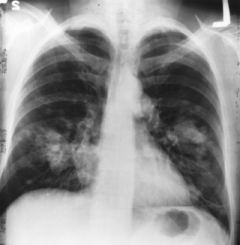In order to maintain accurate family histories from their patients, physicians should get a comprehensive family history by age 30, and then update it every five to 10 years because histories change significantly between ages 30 and 50 years. According to a new study by a multi-institution team of NCI-supported researchers, getting updated histories every five years would maximize the likelihood of detecting cancer at an early, more treatable state.
Related Posts
More interviews: A playlist of NCI interviews
As I was updating my blog, I was pleased to find that the playlist of interviews I conducted with NCI
Gene variations linked to lung cancer susceptibility in Asian women
An international group of scientists has identified three genetic regions that predispose Asian women who have never smoked to lung
NIH study finds physical activity extends life expectancy as much as 4.5 years
Leisure-time physical activity is associated with longer life expectancy, even at relatively low levels of activity and regardless of body


